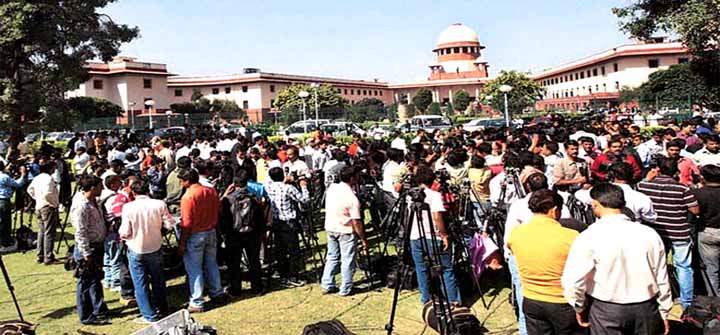Next Story
9 Feb 2018 2:20 PM IST
As the writ petition filed by senior counsel Indira Jaising seeking live streaming of apex court proceedings came up for hearing before the Supreme Court on Friday, petitioner-in-person advocate Mathews J Nedumpara, having instituted a petition seeking identical relief, submitted that Jaising’s petition was mentioned even before filing ‘to garner publicity’.To this, Jaising asked...

